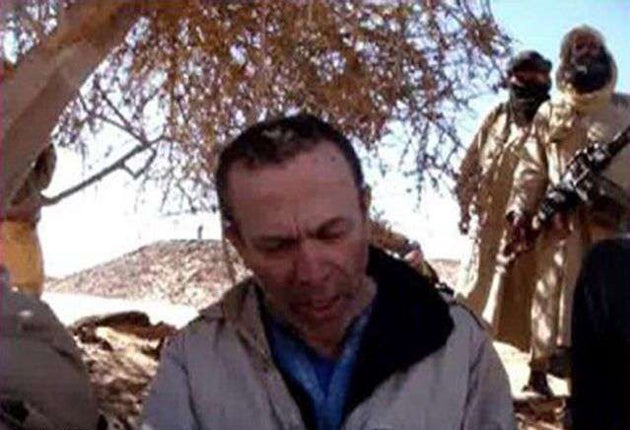Was British tourist a pawn in deadly intelligence game?

Your support helps us to tell the story
From reproductive rights to climate change to Big Tech, The Independent is on the ground when the story is developing. Whether it's investigating the financials of Elon Musk's pro-Trump PAC or producing our latest documentary, 'The A Word', which shines a light on the American women fighting for reproductive rights, we know how important it is to parse out the facts from the messaging.
At such a critical moment in US history, we need reporters on the ground. Your donation allows us to keep sending journalists to speak to both sides of the story.
The Independent is trusted by Americans across the entire political spectrum. And unlike many other quality news outlets, we choose not to lock Americans out of our reporting and analysis with paywalls. We believe quality journalism should be available to everyone, paid for by those who can afford it.
Your support makes all the difference.A more lonely and horrible death is hard to imagine. Edwin Dyer had only gone to Africa to attend one of the burgeoning music festivals breathing new life into the arid economy of the southern Sahara. But as he returned from a Tuareg festival in Mali in January he was kidnapped along with three other Westerners and held for four months by militants.
Last week the militants, who align themselves with al-Qa'ida, said they had beheaded the 61-year-old Briton.
The murder marked a disturbing shift in the ill-defined battle with al-Qa'ida. He is the first Briton to be killed in the region. His death also exposed the shadows of Western intelligence in the area, some observers say.
Mr Dyer was abducted when the convoy he was travelling in was ambushed at Mali's border with Niger by local tribesmen. It is believed the kidnappers sold their catch to a group called al-Qa'ida in the Islamic Maghreb, formerly known as the Salafist Group for Preaching and Combat – Algerian insurgents who aligned themselves to al-Qa'ida in 2003. By February this group was claiming responsibility for the kidnapping.
Little more was heard of Mr Dyer, who worked in Austria, until his execution was publicised last week. The militants had called for the British government to release the Muslim cleric Abu Qatada, who is in prison pending extradition to Jordan, where he faces terrorism charges. Other reports claimed Britain had refused to pay a ransom. Two women kidnapped with him were released in April after money allegedly changed hands.
"They don't give a damn about Abu Qatada. They weren't prepared to release Mr Dyer for nothing," Mohamed Ben-Madani, the editor of the Maghreb Review, said.
One of the suspects in the kidnapping is Abdelhamid Abou Zeid, listed by the UN as an al-Qa'ida militant.
Writing in The Independent, Jeremy Keenan, professor of social anthropology at the School of Oriental and African Studies in London, claimed Abou Zeid is a member of the Algerian security services and US intelligence had been interfering in the region.
"In 2002 there were plans by Algerian security forces to kidnap Western tourists to make it look like there was terrorism in the Sahara," he said. "What the West set up... seems to have spiralled out of control. The culpability for Mr Dyer's murder rests as much with Western intelligence services as with al-Qa'ida."
Join our commenting forum
Join thought-provoking conversations, follow other Independent readers and see their replies
Comments